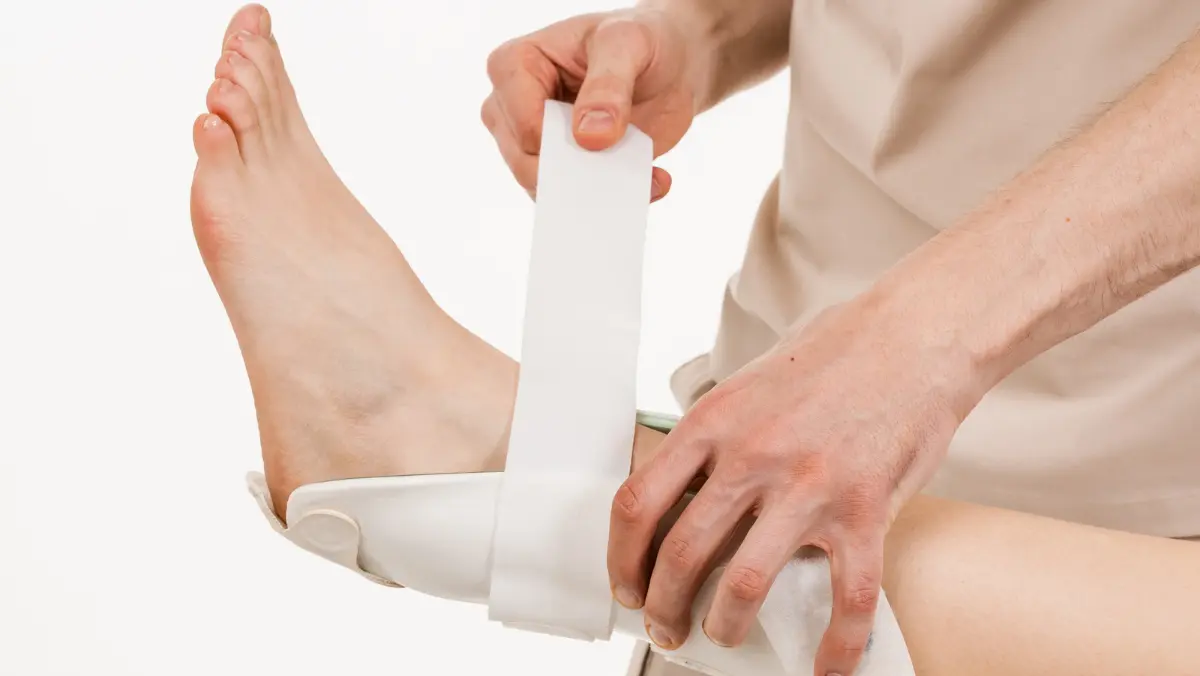OCD fixation, or osteochondritis dissecans fixation, is a surgical procedure used to treat a condition where a piece of bone and cartilage has become loose in a joint, typically the knee, elbow or ankle. This can cause pain, swelling, and difficulty with movement. The aim of OCD fixation surgery is to reattach the loose fragment to the underlying bone and promote the growth of new, healthy cartilage. Arthroscopic OCD fixation is a minimally invasive technique that uses small incisions and a tiny camera to guide the surgeon’s instruments. This can help to reduce the risk of complications and speed up recovery time compared to traditional open surgery. After the surgery, rehabilitation is typically required to help regain strength and mobility in the affected joint.

Osteochondritis dissecans (OCD) is a condition where a piece of bone and cartilage in a joint loses its blood supply and begins to die, leading to pain, inflammation, and eventually joint damage. Arthroscopic OCD fixation is a minimally invasive surgical procedure that involves using small incisions and a camera to remove the dead bone and cartilage fragments and replace them with healthy cartilage tissue. The goal of the surgery is to relieve pain, restore function, and prevent further joint damage. Rehabilitation after the surgery plays a crucial role in achieving these goals.
Before arthroscopic OCD (osteochondritis dissecans) fixation surgery, your doctor will conduct a thorough evaluation to assess the severity of the condition and determine if arthroscopic surgery is the right option for you. The preoperative assessment may include a physical examination, imaging tests (such as X-rays and MRI), and a discussion of your medical history and any medications you are currently taking.
You may also be instructed to stop taking certain medications, such as blood thinners, prior to the surgery. It’s important to follow your doctor’s instructions carefully and ask any questions you have about the procedure or the recovery process. You may also need to arrange for transportation to and from the surgical center or hospital and have someone to stay with you during the initial recovery period.
Arthroscopic OCD fixation is a surgical procedure performed to treat osteochondritis dissecans (OCD), which is a condition that affects the joints. During the procedure, the surgeon uses an arthroscope, which is a small camera, to visualize the inside of the joint. The surgeon then makes a small incision in the skin and inserts surgical instruments through the arthroscope to remove any loose fragments of bone or cartilage, and smooth any rough surfaces. The surgeon may also drill small holes in the bone to promote healing and new bone growth. In some cases, the surgeon may use screws or pins to hold the bone in place while it heals. The procedure is typically performed under general anesthesia and takes about 1-2 hours to complete.
Following arthroscopic OCD fixation, patients will typically spend several hours in the recovery room before being discharged from the hospital or surgical center. The affected joint may be placed in a brace or splint, and pain medication may be prescribed to manage discomfort during the first few days after the procedure.
Physical therapy typically begins a few days after surgery, with the goal of restoring joint mobility and strength, reducing swelling, and preventing complications. The initial focus is on gentle range of motion exercises, with progress towards strengthening exercises and weight-bearing activities as tolerated. The length of rehabilitation varies depending on the patient’s individual circumstances, but may last several months.
Patients are generally advised to avoid high-impact activities and heavy lifting during the initial phase of recovery, and to gradually increase their activity level under the guidance of their physical therapist and surgeon. Close follow-up with the surgeon is also typically recommended to monitor progress and ensure proper healing.
Rehabilitation after arthroscopic OCD fixation depends on several factors, including the size and location of the lesion, the extent of the repair, and the patient’s overall health and level of physical fitness. In general, rehabilitation after this procedure involves a period of immobilization followed by progressive physical therapy to restore range of motion, strength, and function.
During the initial postoperative period, patients may need to use crutches or a walker to avoid placing weight on the affected joint. A rehabilitation program typically begins with gentle range-of-motion exercises to maintain flexibility and prevent stiffness. As the patient’s condition improves, they will progress to more challenging exercises, such as strengthening exercises and functional activities.
Physical therapy may also include modalities such as heat, ice, ultrasound, or electrical stimulation to promote healing and reduce pain and swelling. The rehabilitation program may be tailored to the specific needs and goals of each patient, and may be adjusted over time as their condition improves.
The duration of rehabilitation after arthroscopic OCD fixation can vary depending on the individual patient and the extent of the repair. Some patients may be able to return to normal activities within a few months, while others may require a longer period of rehabilitation. It is important for patients to follow their physical therapy program closely and to communicate regularly with their healthcare team to ensure a safe and successful recovery.
New No. 85, Royapettah High Road, Royapettah, Chennai – 600014
© Designed and Developed By cloudstar.digital